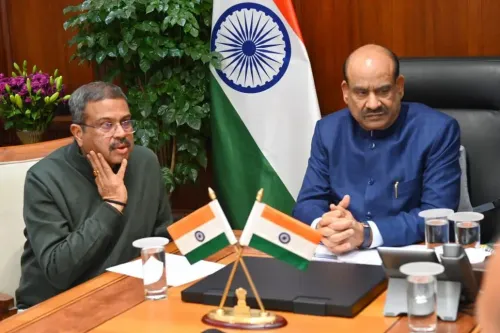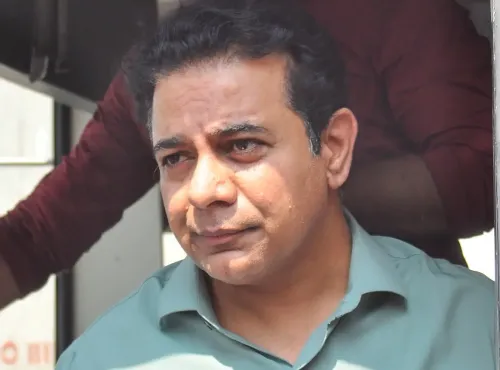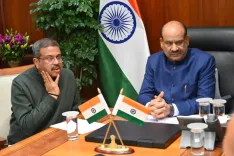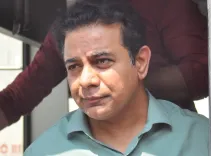Did Assam CM Himanta Biswa Sarma Justify His Attack on Rahul Gandhi's 'Surrender' Remark About PM Modi?
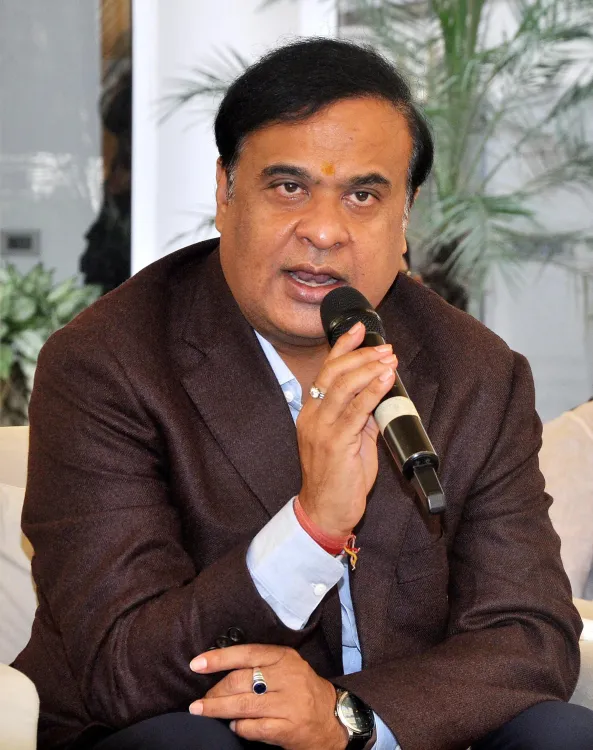
Synopsis
Key Takeaways
- Himanta Biswa Sarma criticized Rahul Gandhi for his remarks against PM Modi.
- The exchange reflects ongoing concerns over national security.
- Historical actions of Congress were cited to illustrate perceived failures.
- Political strategies are aimed at highlighting differences between the BJP and Congress.
Guwahati, June 5 (NationPress) Assam Chief Minister Himanta Biswa Sarma fiercely criticized Congress leader Rahul Gandhi on Thursday, rebuking the Leader of the Opposition in Lok Sabha for the nerve to use a surrender remark against Prime Minister Narendra Modi.
The BJP leader's pointed response followed Rahul Gandhi's comments amid ongoing political discussions related to national security and foreign policy, especially after the success of Operation Sindoor.
In a post on social media platform X, Sarma accused the Congress party of a long history of compromising India's territorial and strategic interests.
He provided what he termed a “reality check” on the Congress' record, referencing Jawaharlal Nehru's actions during the 1947-48 Kashmir conflict, the 1962 war with China, and the release of 93,000 Pakistani POWs after the 1971 Bangladesh Liberation War under Indira Gandhi.
“Let’s remind Rahul Gandhi which party and family surrendered India's interests and betrayed its citizens,” Sarma stated, emphasizing that it was Nehru who “gifted away” what is now Pakistan-occupied Kashmir by halting military action and appealing to the United Nations.
Sarma's post also highlighted Congress-era decisions such as the delayed nuclear tests under U.S. pressure in the 1990s, the absence of retaliation post the 26/11 Mumbai attacks, and the contentious Sharm El-Sheikh joint statement in 2009 that mentioned Balochistan, often viewed as a diplomatic blunder.
He accused the UPA government of attempting territorial concessions, including a supposed plan to concede Sir Creek to Pakistan, which he claimed was only halted due to public exposure during Narendra Modi's time as Chief Minister of Gujarat.
With regards to tensions with China, CM Sarma pointed to repeated intrusions during Congress's rule, contrasting it with what he described as a decisive approach taken under PM Modi, citing actions in Uri, Balakot, and Galwan.
“The Congress didn’t merely surrender land—it surrendered India’s pride, security, and sovereignty,” Sarma asserted.
“India remembers. India has risen. And India won’t surrender again.”
This political exchange is part of the BJP’s broader strategy to portray national security as a key distinction between PM Modi’s leadership and what they define as the Congress party’s appeasement policies of the past.


